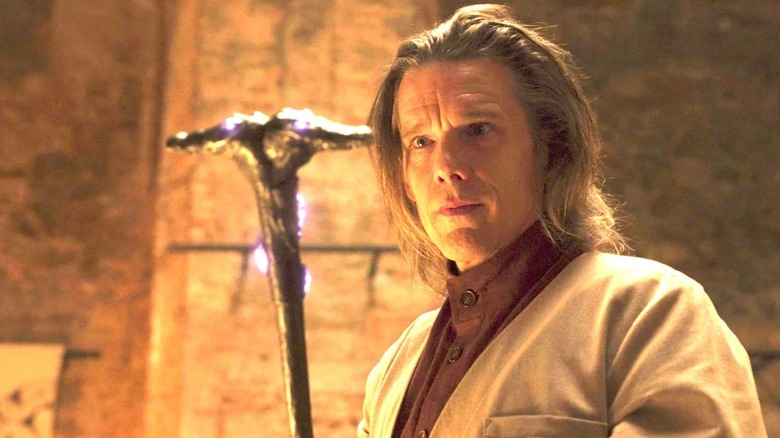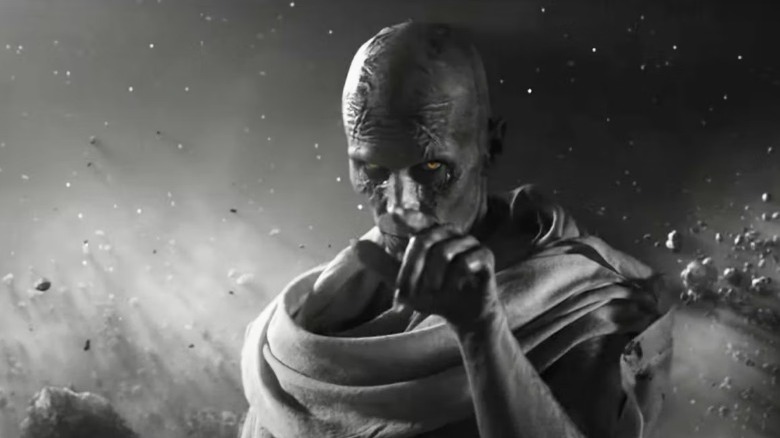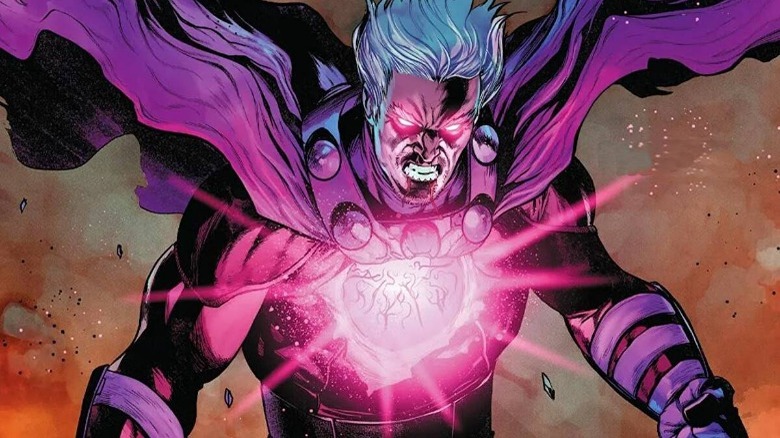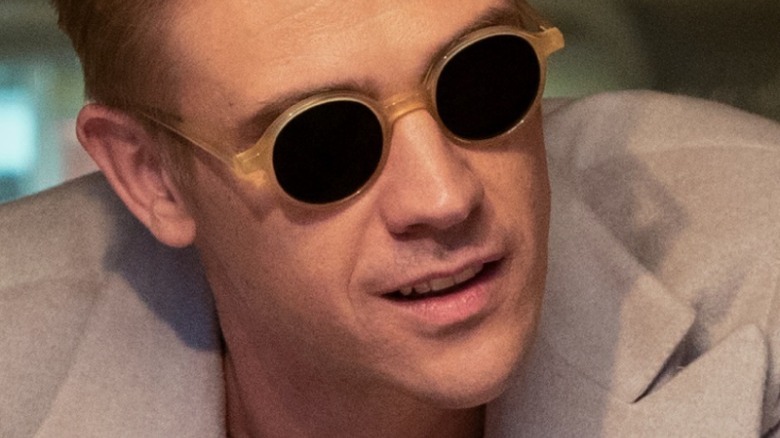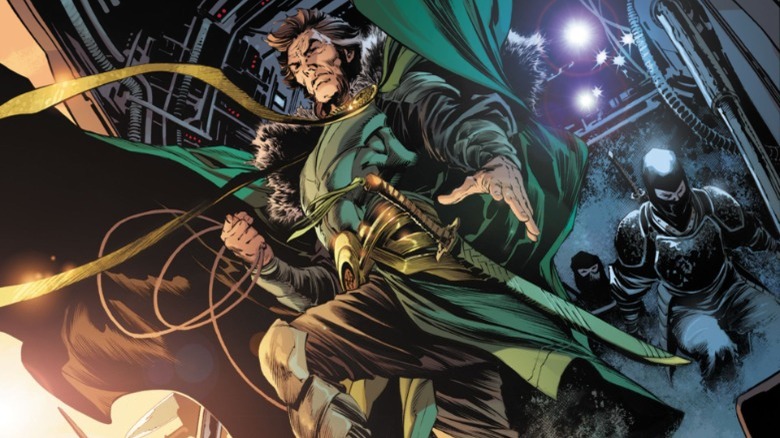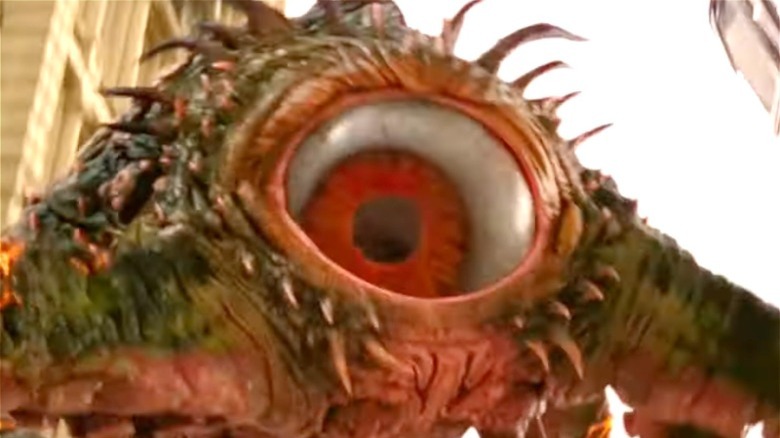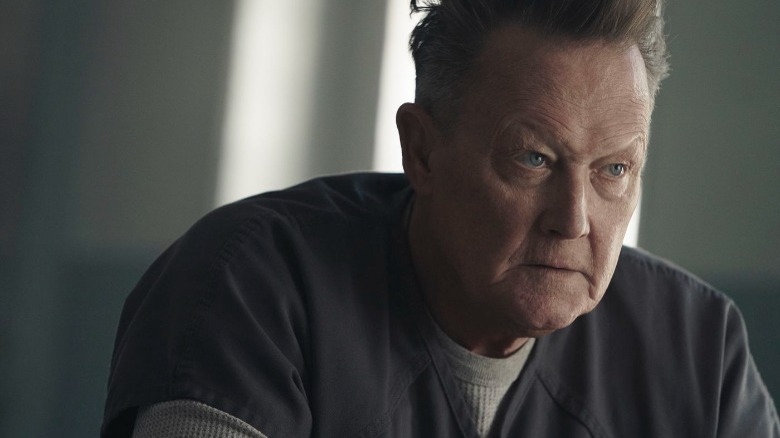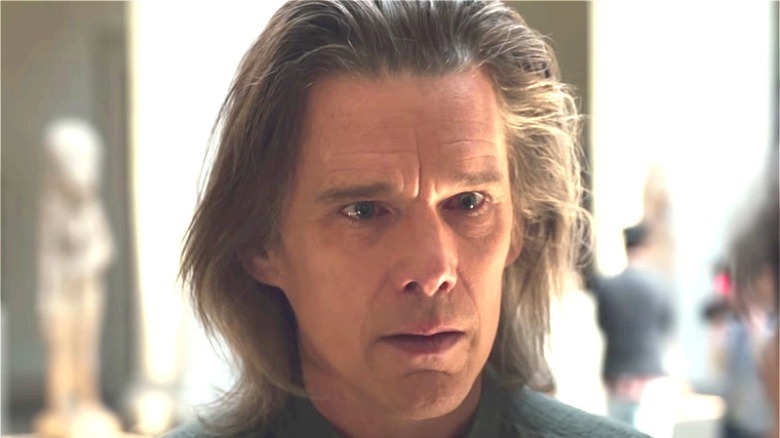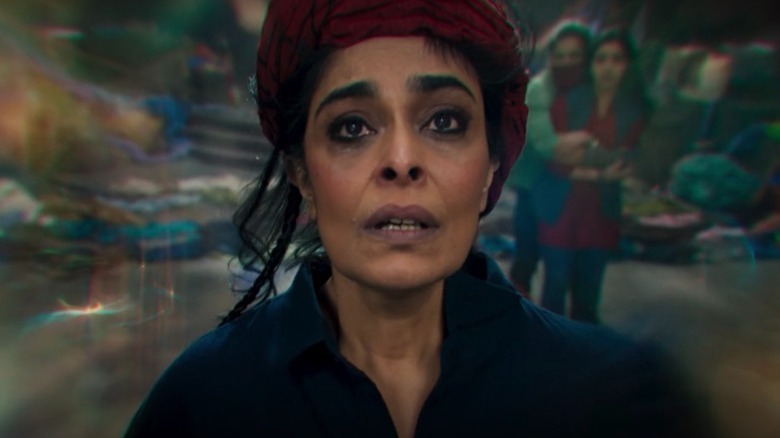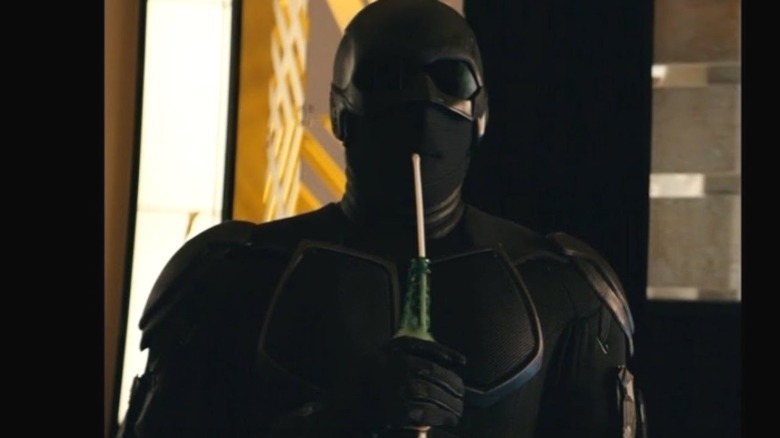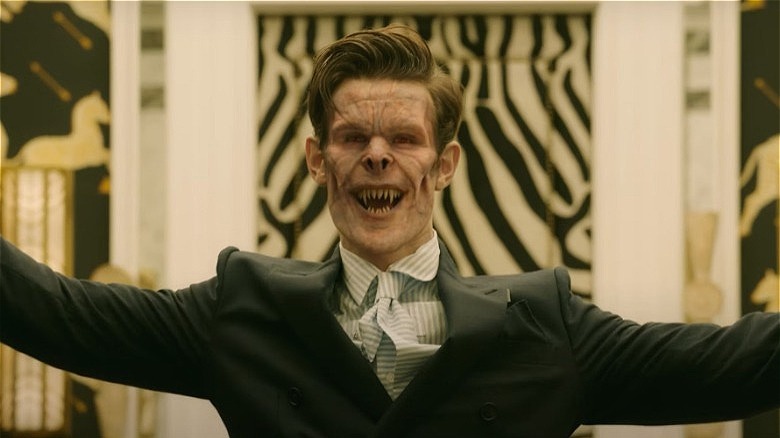Supervillains We Lost In 2022
It's hard out there to be a bad guy. Your legitimate grievances with society go ignored until you blow up a planet over it, and then suddenly everyone's paying attention to the wrong thing. Or your legitimate grievances receive attention but go unresolved, and when you genetically engineer people to turn into dinosaurs, suddenly you're a meme. Even worse, should you get somewhere with your goals, nobody is happy with you and the heroes band up to kill you and undo your hard work. Can't we ever just talk things out? Over a lava lake with magma sharks in it?
Or, perhaps you realize you were going about things the wrong way, and you make an effort to turn the situation around. You experience regret, grow as a person, and then, well, redemption usually equals death in stories like that. As nearly all of us experienced, 2022 was particularly tough on the fine old profession of evildoing. As we ring out the last dregs of the old, let's take a moment to remember some of those we lost. To doing terrible things. For a variety of reasons. In really, really cool ways. The supervillain death class of 2022, we salute you.
Gorr, Thor: Love and Thunder
Gorr, titled The God Butcher (Christian Bale), once lorded over a magnificent saga. In the first telling of his tale, "Thor: The God Butcher," by Jason Aaron and Esad Ribic, Gorr is a terrifying figure. Pale, robed in black tatters, with a dread sword in hand, Gorr cut his way throughout the galaxy, ending ancient Gods for their failure to live up their worshippers' ideals. Merciless and nigh-unstoppable, Gorr, like the best supervillains of yore, had a damn good point in his reign of deicide.
But his 2022 transition to the big screen left him with less of an impact. Here, the God Butcher butchered no gods on screen. His terror was told in asides after the fact, and our glimpses of this stately horror, carried by a magnificent performance by Bale balanced perfectly with the character's love for his lost child, were few and far between. Gorr the God Butcher exited 2022 humiliated by heroes twice over. Once by losing his life at the cusp of his victory, and second, by losing his dignity as another underutilized Marvel villain. Rest well, you marvelous evildoer. May your next tale be better, possibly by including the words "What If?"
Magneto, A.X.E. Judgment Day
If Erik Lehnsherr, styled Magneto, had a nickel for every time he died in the major Marvel comic book continuities, he would eat like a king in an old diner the next time he resurrects and gets flung back through time. Slain at least seven times in comics previous to 2022, his latest fall might at last be the mutant leader's final rest. For the next few years, at least. And hey, at least his movie incarnation keeps pulling through just fine.
The "A.X.E.: Judgment Day" event is difficult to summarize, but in brief, mutants achieved immortality, drawing the attention of the Eternals. Conflict broke out, and in a major engagement, Magneto, assisted by Storm, held off a rogue Eternal bent on destruction. The effort entirely drained an already wounded Magneto. Worse, he'd chosen to give up his immortality. The noble supervillain — often turned hero and always armed with a good argument about the place of mutants in a human world — died happily in the arms of Storm. Erik Lehnsherr, survivor of a horrific Jewish genocide, has, for now, prevented another. Let his tombstone read: "The X-Men" #1 1963 – "X-Men Red" #7 2022. The salvation of mutantkind has earned his gentle rest.
The Corinthian, The Sandman
While readers already know a few things about the recurrence of dreams and nightmares, Netflix's "The Sandman" is only a few arcs through Neil Gaiman's legendary saga, and the rules have changed. The series reworks a number of details to serve the new medium, and one of the finest changes is the expansion of The Corinthian's (Boyd Holbrook) role in Dream's troubles.
The Corinthian was a nightmare built to reflect humanity's horrors. But, left to his own devices for over a century, The Corinthian instead began to indulge himself on human life. His actions egged on the worst of us, and, though his plans slowed Dream's attempt to reassert total control over his realm, The Corinthian would be cornered at a serial killer convention. Worse, he's shamed for his failure as a nightmare. Unlike his peer, Gault, The Corinthian's rage against his maker is less poignant and less immediately influential. Where one nightmare has already reawakened as a dream, for now, The Corinthian's eye-ful skull lays silent. Sleep tight, little nightmare. We look forward to your next incarnation ... and Boyd Holbrook's appearance in "Indiana Jones and the Dial of Destiny."
Ra's al Ghul, Shadow War
Immortality proved fleeting for another long-term supervillain. Ra's al Ghul, the ultimate eco-terrorist who held secretive mastery over the Lazarus Pits, underwent a surprising change of heart previous to DC's 2022 "Shadow War" event. At peace with his grandson, Damien, and with a new, more pragmatic view of humanity's future, Ra's was on the cusp of making a world-changing offer. The Lazarus Pits would open to everyone.
Unfortunately, the reformed Master of Assassins was himself assassinated in the midst of his press conference, his body intentionally disintegrated by his killer as a follow-up. Thus, the lord of Lazarus may have, at last, seen the final door close on his life. It's additionally poignant that Ra's al Ghul lost one of his iconic voices in 2022, as well. Portrayed by several excellent actors, including Alexander Siddig ("Gotham") and Oded Fehr ("Young Justice"), his most stentorian tones came from David Warner, who died roughly three months after Batman's mentor, nemesis, and sometime friend. To the incomparable Ra's al Ghul, may he rest ... and, perhaps, rise yet again, someday.
Gargantos, Doctor Strange in the Multiverse of Madness
The infamous eldritch abomination Shuma-Gorath, in universe, spent his brief time in "Multiverse of Madness" under a thin layer of witness protection. Truth be told, it was a snarl of rights issues, leading the famous tentacled glob to take the underwhelming name Gargantos. Gargles was a sea creature of almost unknown repute before 2022, appearing twice in minor stories, but Shuma-Gorath, having tangled with Conan and the evils of Thulsa Doom, lost his identity and needed a cover story.
Though enjoyably grotesque to behold, Shuma — excuse us, Gargantos — earned less screen time than Gorr the God Butcher. Reduced to a first-act annoyance, the omnipotent Many-Angled One, lord of countless ruined dimensions, fell relatively quickly to the magics of Wong and Doctor Strange. Of all the villains we lost this year, Shuma-Gorath, with his serial numbers filed off, might have gone out as the most irrelevant. Our condolences to the rest of the Great Old Ones, and better luck next time.
Auggie Smith, Peacemaker
What can be said over the grave of August Ransom Smith (Robert Patrick), the White Dragon? He was a terrible father to Christopher "Peacemaker" Smith, an irredeemable bigot and sexist, and an old-school racist of the white-sheet variety. A capable tinkerer, Auggie created multiple gadgets, ugly helmets for a son he hated, and his own corny but effective supervillain suit, colored, naturally, red, white, and black.
He was a man who accidentally engineered the death of his elder son, Keith, but took no responsibility for it. Wrongfully accused of the one crime he didn't commit, Auggie was happy to sell out Peacemaker to the authorities for the sake of his own skin. He was also prepared to kill his remaining son, but paid for his attempt with his own life. The last gift he gave Peacemaker was a rollicking case of lasting trauma. Writhe in hell, Auggie Smith. May your memorial forever be a public toilet and a glorious reminder that it is always moral to wreck a Nazi.
Arthur Harrow, Moon Knight
Arthur Harrow was a man who believed in the righteousness of his principles. Once a servant and avatar of Khonshu, he turned away from the laws of the Ennead to serve Ammit, believing the imprisoned Goddess to be a better arbiter of humanity's sins. He formed a cult in her name, and the Disciples of Ammit worked to spread her virtues, and find their patron's hidden prison.
Harrow's cult had a veneer of legitimacy, operating soup kitchens with open-door policies. But Harrow, who indulged in self-harm instead of actual virtue, often let it slip that his humanitarian efforts left little impact. His linguistic initiatives were trash, his kitchens pointlessly genteel, and his actual services resulted in flawed but good people dying by Ammit's judgment without any chance for redemption. Arrogant under his humility, Harrow nearly won, temporarily freeing Ammit. But the efforts of Marc Spector and Layla El-Faouly trapped Ammit inside Harrow, no longer capable of killing the world in order to balance it. Days later, Harrow would be apparently killed by Khonshu's still-serving avatar, Jake Lockley. There were no tears.
Najma, Ms. Marvel
Najma (Nimra Bucha) was a powerful Djinn from the Noor Dimension, a matriarchal figure to the Clandestines, and an overpowering but loving mother to her son, Kamran. Exiled to Earth for unknown cause, and searching for a way to return for an indeterminate length of time, she and her fellow Djinn, Aisha, uncovered their first clue in 1942. Aisha would later disappear with the mysterious bangle the Clandestines found, and Najma dedicated her life to finding both Aisha and the bangle.
Eventually, Najma would cause the death of her friend during the chaos of Partition, though she was unable to claim the bangle. Decades later, Najma discovered that the mystic bracelet was now on the wrist of Kamala Khan, who, half-Djinn and born a mutant, used its power to connect with the light of Noor. Ultimately, however, Najma chose to cease fighting Kamala for the bracelet in favor of stopping a destructive wave of light coming from her home dimension. Powerful, empathetic, and dangerous, Najma may have been a villain, but she was also a loving mother. Her gifts live on through her son.
Black Noir, The Boys
Silent but deadly, Black Noir (played by Nathan Mitchell) was a founding member of Vought International's massively popular superhero initiative, The Seven. Originally a member of Payback, an earlier Vought superhero team, Black Noir agreed with his teammates that Soldier Boy's leadership had become a liability. Their attempt to force a leadership change was successful, but the fight left Black Noir disfigured and disabled, and his time among The Seven would see him mute.
Black Noir kept his secrets close, from the depths of his neurological damage that made him hallucinate cartoon friends, to the truth of Homelander's origins and rise to power. It was the latter that drove Homelander into a murderous rage when he discovered that not only did he have a living genetic father — even though Homelander was nurtured by Vought's labs — but that it was Soldier Boy. Eviscerated, missing several organs, and comforted by his cartoon friends, Black Noir left this world to go home to Jesus. Theoretically. A new Black Noir is slated to join Vought International's premier team, proving, once again, that late-stage capitalism won't care if you die. They'll just shove a new warm body into your place.
Milo Morbius, Morbius
Milo Morbius (Matt Smith), born Lucien Crown, is a forgettable death in a long year of intense suckage that was not helped by the memetic horror of this semi-vampiric clown show. The main antagonist of Sony's non-blockbuster "Morbius," Milo, already cursed with a nickname like Milo, was a rich nepo baby who made friends with Mikey Morbie over their shared blood disorder. This genuinely heartwarming detail is overshadowed by the events of his later life, when Milo decided hey, slurping weird bat blood worked for his bro, why not try it out for himself?
A dapper gent whose transformation granted him a $20 vamp makeover and the dancing skills of Hugh Grant in "Love, Actually," Milo, already a billionaire and therefore loathsome, found his worst traits amplified by vampirism. He died by the end of a movie that somehow got a double theatrical release, because an entire billion-dollar media corporation didn't understand a joke. No goodbyes, Milo. You blew. But let's hoist a toast to Matt Smith, who promptly turned it around with a stellar job as a far better antagonist and drama hound on "House of the Dragon."
